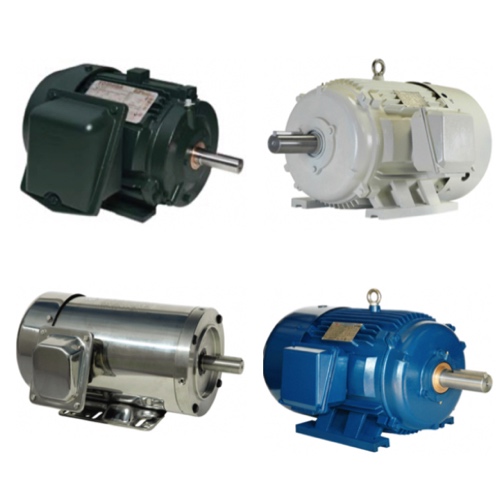All Motors

RSP Supply carries a full line of industrial electric motors from trusted manufacturers including Baldor-Reliance, GE Motors, Nidec, Worldwide Electric (Previously NAE), Tatung, and Toshiba. These motors are built for durability, energy efficiency, and precision control - delivering dependable performance across a range of industries such as manufacturing, agriculture, HVAC, and automation.
Industrial electric motors convert electrical energy into mechanical power, driving the essential systems that keep industrial processes running smoothly. Whether you need a general-purpose motor, a severe-duty model for harsh environments, or a high-efficiency motor for automation, RSP Supply provides solutions that meet your exact requirements.
FAQs
Q: What industries use industrial electric motors?
Industrial electric motors are used in manufacturing, HVAC systems, agriculture, automation, water treatment, and material handling industries for powering equipment and machinery.
Q: What is the difference between AC and DC motors?
AC motors run on alternating current and are commonly used for fixed-speed applications, while DC motors operate on direct current and offer precise speed and torque control for variable applications.
Q: What are severe-duty and explosion-proof motors?
Severe-duty motors are built for harsh environments with exposure to dust, moisture, or chemicals. Explosion-proof motors are designed to operate safely in hazardous locations where flammable gases or vapors may be present.
Q: How do energy-efficient motors save costs?
Energy-efficient motors reduce power consumption and heat loss, leading to lower operating costs, extended equipment life, and improved system performance.
Q: Are replacement parts available for these motor brands?
Yes. RSP Supply offers a full selection of replacement parts, accessories, and mounting hardware for motors from Baldor, GE, Nidec, Toshiba, and other leading manufacturers.
Why Buy Industrial Motors from RSP Supply
RSP Supply partners with industry-leading motor manufacturers to provide reliable, high-performance electric motors for every application. We offer fast shipping, competitive pricing, and expert support to help you select the right motor for your operation; ensuring efficiency, safety, and long-term value for your investment.

